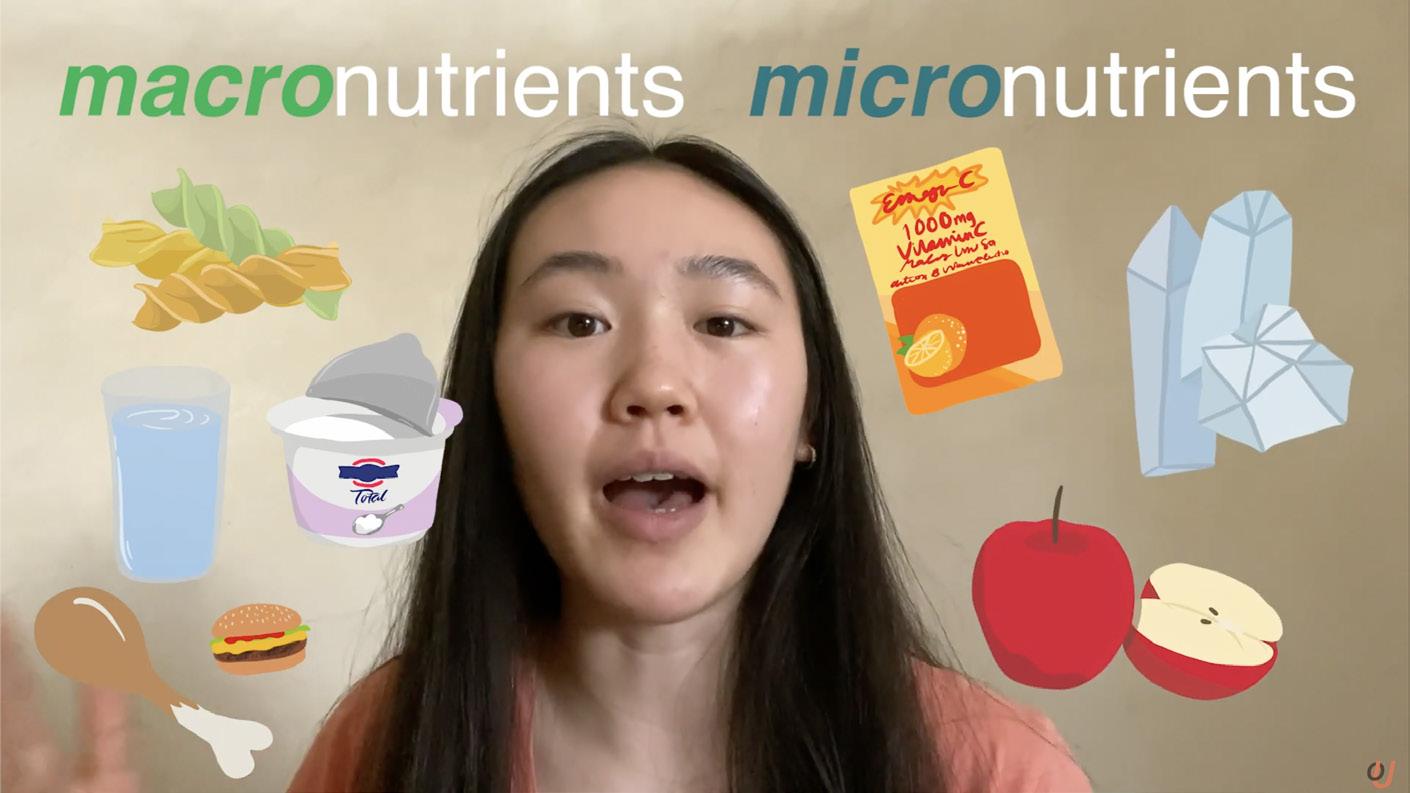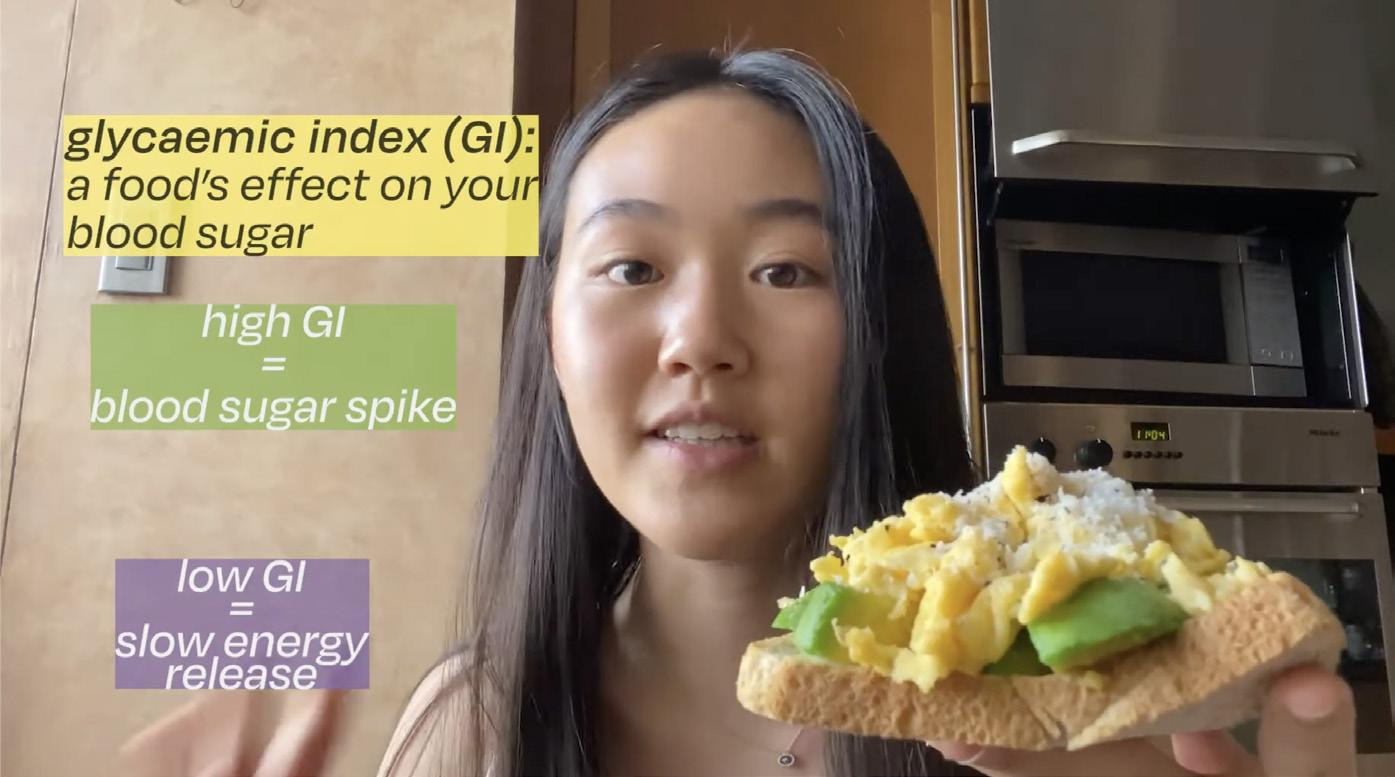
4 minute read
OptimiseU - Building Your Sports Ecosystem
Isabelle, a student from British School Manila initiatites OptimiseU, a visual, science-backed resource for athletes who don't yet understand the power at their fingertips to become a better and more curious sportsperson.
Imagine the most obscure language you've heard of. Imagine the foreign syllables. The bizarre intonations. Fusing together to become a string of incomprehensible sounds. That was science to me: a language that my Year 10 self had yet to decode, and truly appreciate.
During my GCSE years, being recruited into the U16 Philippines Women's National Football Team, I was suddenly exposed to this novel application of science. Never in my wildest dreams had I envisioned such an inextricable link between a ball-game and science. Yet, I was learning about and questioning Sports Science's vast field through my coaches and my physiotherapist. Here's what I learnt from training at a national level:
1. There is a fine line between under and over-consumption of that rich bottle of electrolytes, be it Gatorade, Pocari Sweat or coconut juice. Too much salt in the body leads to electrolyte imbalance, leading to cramps and dizziness. We were only allowed 1 bottle of Pocari Sweat per match day. (I fought incredibly hard against the urge to sneak a sip.)
2. Stretching...actually matters. And, if done properly, it could prevent muscle soreness. Like many middle school and high school students, I didn't fully respect the idea of warm-up and cool-down, having never noticed significant benefits from them. However, with a consistent 30–45 minutes of intense warm-up and thorough cool-down to ease muscle micro-tearing, muscle pain was the least of my concern.

3. No one actually knows why cramps occur. It's all speculation and prediction, so there is no one way to ‘cure’ it; do what you think works best for you.
4. The rotational application of hot and cold on our muscles can produce beneficial effects to recovery and performance due to their effect on the nervous system and the constriction of blood vessels. Take ice baths, menthol muscle sprays, and hot compresses for example.
The idea that an understanding of biology and chemistry's intricate mechanisms could allow me to manipulate my performance really intrigued me. There is customisation and adaptation in sports that can lead to optimisation. Having subsequently done my own research about the nutrients we consume daily and the mechanisms of our muscles, I learnt so much that I just wish I'd known earlier:
1. It matters what time you eat during the day, and how distant you space your meals and training.
3. Snacking too close to competition time could be self-sabotage, if your body is wasting energy for digestion rather than performance.
4. Exercise bands in training apply a resistance that mimics the strength curve you would expect from an opponent’s physical pressure in a real game – surprisingly mathematical!
5. The direction in which you wrap your injured ankle has impacts on its healing due to the balance of pressure. Now taking IB Higher Level Chemistry, Biology and Maths, I have a particular drive to support my research with trusted literature and professional advice.
As a result, I created OptimiseU. I wanted it to be a visual, science-backed resource for athletes who were in my position: those who don’t yet understand the power at their fingertips to become a better and more curious sportsperson.


Throughout my research, I've identified 3 primary categories to begin with: nutrition, exercise optimisation, and injury care & prevention. I am so grateful to have had the amazing opportunities to interview well-established and experienced athletes, doctors, coaches and professionals who were just as excited as I was to share knowledge and experience. I interviewed National and Olympic footballers and swimmers like James Younghusband, Inna Palacios, Remedy Rule and Luke Gebbie, and learnt Expanding the reach of OptimiseU can allow me to strengthen my partnership with Special Olympics Philippines, which is something I hope to achieve by connecting with athletes and discussing the vast scope of science and sports. so much about what they've picked up over years of unique experience with nutrition in sports – all of which are on my channel under a 3-part series.
I've also interviewed Lewis Keens. Aside from providing an insightful perspective to sports nutrition, he emphasised the importance of sleep – a category I’ve recently been researching more – leading me to pick up his book recommendation, ‘Why We Sleep’ by UC Berkeley’s Dr. Walker.
After introducing this to my school community and our Primary School PE lessons, I'm excited to see its impacts in the coming months. As we progress through COVID-19, I hope to bring accessible, trustworthy tips that we could all use regarding nutrition, exercise and injuries, while we are all looking after ourselves at the moment. Ultimately, my goal is to equip younger athletes, with the tools they need to mirror – and eventually create for themselves – a professional sports ecosystem. I can't wait to continue sharing this passion project.
Article by: Isabelle The British School Manila










